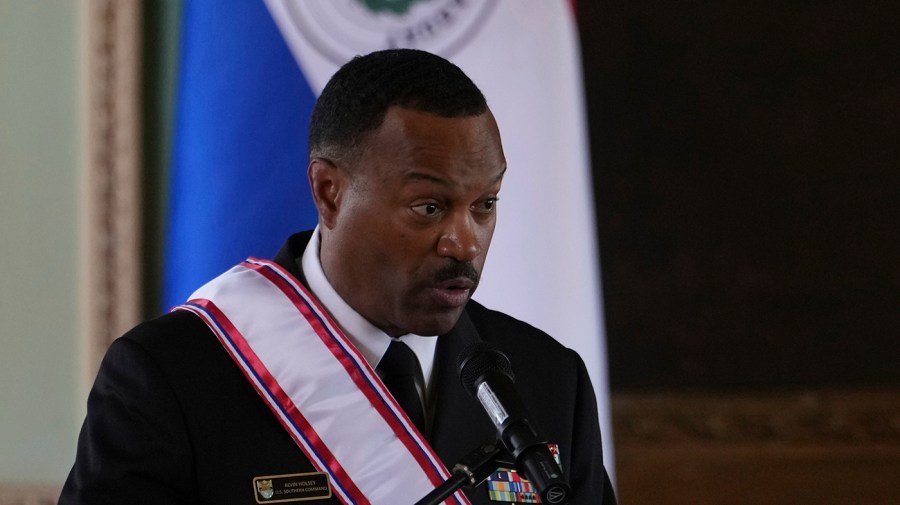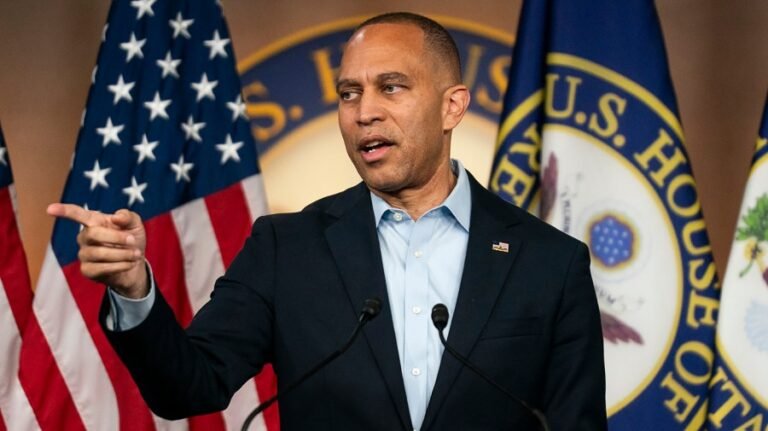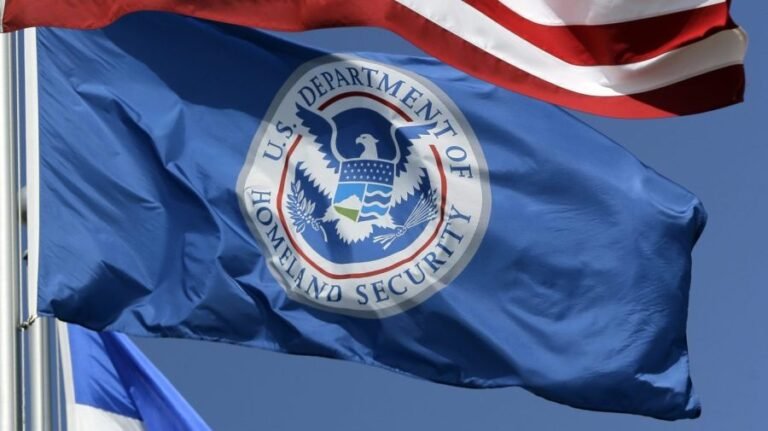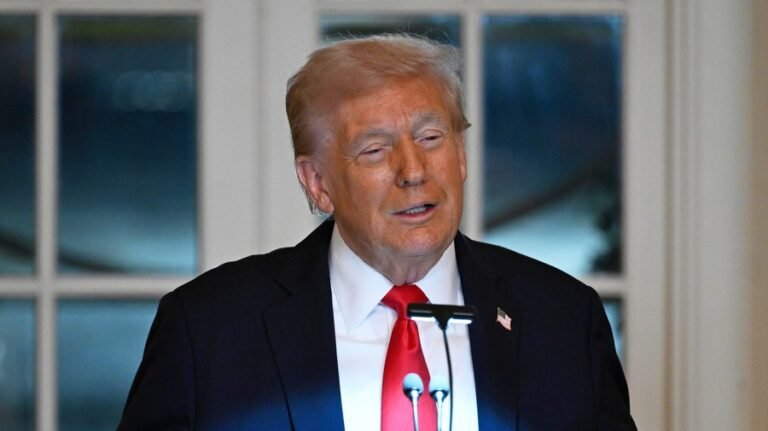
The abrupt retirement of the four-star Navy admiral overseeing the U.S. military’s strikes against boats in the Caribbean is raising alarms as to the validity of the attacks and the Trump administration’s broader plans in the region.
In a surprise move, Defense Secretary Pete Hegseth on Thursday announced that U.S. Southern Command (Southcom) head Adm. Alvin Holsey would step down at the end of the year, two years ahead of schedule. Southcom oversees all operations in Central and South America, and multiple outlets have reported that Holsey and Hegseth were at odds over the U.S. mission in the Caribbean.
Holsey’s unexpected departure, set for Dec. 12, means Southcom is without its top military commander at a time when the Trump administration is building up U.S. forces in the Caribbean and increasingly targeting vessels off the Venezuelan coast it says are transporting drugs — most recently on Thursday — escalating a standoff with the government of President Nicolás Maduro.
“Everything we’re seeing is setting off alarm bells,” said Brian Finucane, a national security lawyer with the International Crisis Group, an organization focused on conflict resolution. “The military build up in the Caribbean, these lawless strikes on vessels there, . . . the administration talking about potential action in Venezuela. None of this is being undertaken with congressional authorization.”
Holsey’s retirement announcement comes as the Trump administration has steadily escalated its actions and rhetoric toward the Venezuelan government, quietly shifting roughly 10,000 troops in addition to warships, fighter jets and a nuclear submarine to the Caribbean in support of what officials say are counternarcotics operations. The majority of the service members are based in Puerto Rico, with eight Navy ships and one submarine in the region.
Hegseth said last week that the Defense Department is forming a new counternarcotics joint task force to “crush” drug cartels, which would operate in the Southcom area of responsibility.
And on Wednesday the U.S. flew three B-52H bombers over the area as “a demonstration mission,” U.S. Air Force Southern Command confirmed Friday.
The U.S. military also has conducted six strikes against boats off Venezuela that have killed at least 29 people since September, with the last such strike on a semi-submersible vessel leaving two survivors that were being held aboard a Navy ship. Trump on Saturday announced the two survivors would be repatriated to Colombia and Ecuador. Without putting forward evidence, administration officials have claimed the vessels were carrying drugs as justification for targeting the individuals aboard as if they were combatants in a war.
But the six-week campaign has raised alarms among some legal experts and Democratic lawmakers, who question whether the administration is following the laws of war and if it’s taking the advice of its top military officials.
Senate Armed Services Committee ranking member Jack Reed (D-R.I.), called out Holsey’s leaving as “troubling” given growing concerns of a potential U.S. conflict with Venezuela.
“At a moment when U.S. forces are building up across the Caribbean and tensions with Venezuela are at a boiling point, the departure of our top military commander in the region sends an alarming signal of instability within the chain of command,” Reed said in a statement.
“Admiral Holsey’s resignation only deepens my concern that this administration is ignoring the hard-earned lessons of previous U.S. military campaigns and the advice of our most experienced warfighters,” Reed added.
The operations in the Caribbean caused tensions between Hegseth and Holsey, the latter of whom raised concerns about the mission and the attacks on the alleged drug boats, The New York Times reported.
It is not yet clear who will replace Holsey, who is one of only two Black four-star officers leading a U.S. combatant command.
He is now the latest of more than a dozen military leaders who have been fired by Hegseth or pushed out, including chairman of the Joint Chiefs of Staff, Gen. Charles Q. Brown Jr., who is Black; the first female Chief of Naval Operations Adm. Lisa Franchetti; and the U.S. military’s representative to the NATO military committee, Vice Adm. Shoshana Chatfield.
But Holsey’s ouster is particularly notable as it comes as the White House is executing extraordinary power in combating what it claims is a war on drugs.
Trump earlier this month notified Congress that the U.S. is now in an “armed conflict” with drug cartels that the administration has designated as terrorist organizations, offering a tenuous legal rationale for strikes against vessels.
“We attacked a submarine, and that was a drug-carrying submarine built specifically for the transportation of massive amounts of drugs,” Trump told reporters at the White House Friday.
Secretary of State Marco Rubio, who sat alongside Trump, offered no details of the attack, only saying there is “an ongoing Narco terrorist operation the United States has been conducting.”
Outside of the U.S. military, Trump on Wednesday appeared to confirm that he allowed the CIA to conduct operations in Venezuela.
Finucane, a former State Department lawyer, told The Hill that legally, the administration’s justification “doesn’t pass the straight face test.”
“The legal justifications that the administration has advanced for premeditated killing in the Caribbean are completely inadequate,” he said. “There is no armed conflict, the U.S. is not engaged in a war in the Caribbean, these people are therefore not lawful targets, the boats are not lawful targets, and the administration has no legal basis for engaging in these premeditated killings.”
But the boat strikes are unlikely to do little to stop drugs from entering the U.S., with the overwhelming majority passing overland through the U.S.-Mexico border.
In an effort to block Trump from possibly using U.S. forces in Venezuela without congressional approval, Sen. Tim Kaine (D-Va.) along with co-sponsors Sens. Adam Schiff (D-Calif.) and Rand Paul (R-Ky.), will force a vote on a War Powers Resolution, expected in the coming weeks.
“The American people do not want to be dragged into endless war with Venezuela without public debate or a vote. We ought to defend what the Constitution demands: deliberation before war,” Paul said in a statement Friday.
The effort marks the second time senators have sought to block Trump’s buildup of force in the Caribbean Sea. A vote on a separate resolution — which aimed to block the U.S. military from striking more alleged drug trafficking boats in the Caribbean without congressional approval — last week failed 48-51, although it garnered support from Paul and one other Republican, Sen. Lisa Murkowski (Alaska).






